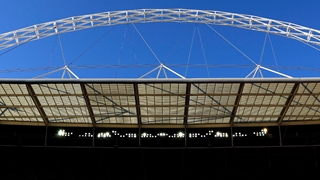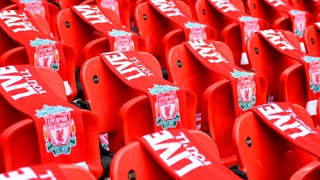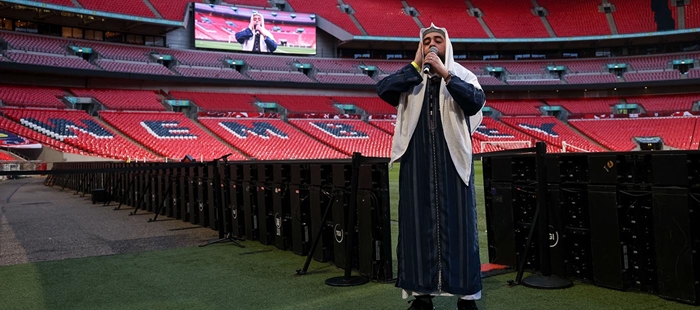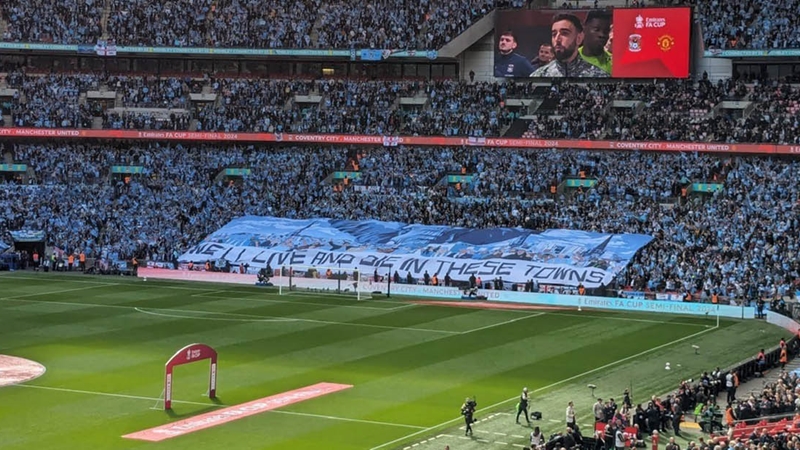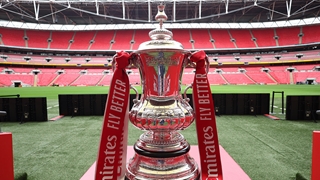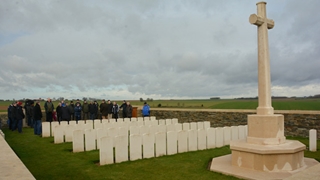
The past weekend was a terrific one for football. A thrilling 42 goals in the Premier League, drama at every turn in the Football League and a rousing FA Trophy final at Wembley – not to mention a certain fixture in Spain.
But as Saturday’s matches were drawing to a close back in England, a whistle was blown in northern France to acknowledge a very different event.
The football family had gathered to mark the centenary of the First World War and representatives from across the game stood side by side at a memorial to the Footballers’ Battalion in the village of Longueval.
It had been a day of rain and remembrance, but at that moment the sun shone brightly on the travelling party.
The Football League had organised the trip as the opening act of what will be four years of football coming together to pay its respects.
A wreath was laid by the League’s representative Andy Williamson, Mike Foster of the Premier League and FA Chairman Greg Dyke.
As the shrill blast of the referee’s whistle sounded to commence two minutes of silence, all reflected on what they had seen and where they had been.
Who were the Footballers' Battalion?
Officially known as the '17th Battalion of the Middlesex Regiment', the 'Footballers' Battalion was formed at Fulham Town Hall in December 1914. It consisted of professional and amateur footballers - plus some supporters - and quickly grew with players from Portsmouth, Crystal Palace and Chelsea. It left for the War after training in November 1915 and played a number of matches as well as fighting the enemy. By the end of the conflict the regiment had lost more than a thousand men.
The journey had begun with the boarding of a coach in central London; bound for the coast and a short train ride that would lead the group to the sites of the Somme – the monumental action that raged from July to November in 1916 and claimed the lives of 20,000 British troops on its very first day.
As the tour took in battlefields and cemeteries, the stories of those who lost their lives were vividly brought to life by the insightful historian Andrew Riddoch and inspiring soldier-turned-footballer Phil Stant.
They told how football had been urged to play its part in the Great War, just 50 years after the game’s laws had been codified with the founding of The FA in 1863.
Ultimately, no other sport was to suffer as many casualties, whether injured or dead.
Dyke said: “This trip has been organised by the Football League, a combined football trip to commemorate something important. You do find when you are here that it brings it all to life - the letters home, the sheer numbers who were killed.
“On that first day of the Somme either killed or injured was everybody at Old Trafford in one day. That’s unbelievable - the scale of it.”
The first Footballers’ Battalion, the 17th Middlesex, contained players, referees and officials from cities and football clubs across the nation; spurred on to join with their pals, united in courage, athletic and valiant rovers looking for an adventure.
One by one the visitors who came to pay their respects stepped forward to tell the players’ stories.
Howard Wilkinson, Brendon Batson and Richard Bevan, representing coaches, players and administrators, among those who brought to life the names of men like Bradford Park Avenue’s Donald Bell – who in a particularly powerful grave-side service finally ‘received’ his Victoria Cross thanks to the work of the Professional Footballers’ Association and National Football Museum.
Others to be singled out included Walter Tull, one of the first prominent black footballers in league football with Tottenham Hotspur and Northampton Town, who against the odds rose to the rank of officer.
Then there was former PFA head Evelyn Lintott and after that Major Frank Buckley who would go on to be a manager of distinction.
Billy Meredith, Joe Mercer Snr – the names of note kept coming.
Letters of the time were shared, such as that written by the sister of 16-year-old Private Horace Isles who implored him to reveal his true age and come home to Yorkshire. He never made it back.
There was a walk through Delville Wood, scene of carnage and devastation a century ago but as picturesque and peaceful a spot as you could ever visit today.
Only the magnificent memorial and the grassed-over craters told of what had gone before.
A visit to a German cemetery reminded how the devastation and sacrifice was felt in equal measure on both sides.
On Sunday morning, before heading back to London, the FA Chairman spoke movingly after a tour through Oppy Wood – scene of the worst day of the war for the footballers’ battalions.
Dyke shared a tribute to the dead that had been given by Charles Clegg, a former president and chairman of the same governing body. It was yet another powerful and poignant reading.
As cyclists and villagers went on their way unawares in the background, the touring party listened intently. Not a word was spoken.
Dyke revealed his personal connection to the horrors of the past during the trip.
“This here is life and death. My granny lost her three brothers. For the whole of her life that was an incredibly upsetting experience.
"When I was a kid I’d go up and see her and she’d be in bed crying. I’m going to find out more. I’ve got the war dead plaque my mother gave me.
“They were all orphans. She brought them up, went off to war one by one and killed. You can’t believe that, can you? It’s not part of our world.
"It would be good if people come over. The numbers coming here have gone up increasingly in recent years. I am quite surprised by how emotional I find the whole thing. “
It was a common reaction. Emotion was certainly felt when the group spontaneously applauded as Gordon Taylor, the chairman of the PFA, wrapped up the trip with a stirring speech.
He spoke with passion on all the players who had more than played their part; each and every one of whom had perished or fallen in pursuit of far more in life than medals, cups and titles.
All present were glad that they – unlike so many a century before – were able to contemplate soon returning home.
It was certain that this would be just the kick-off for football’s act of remembrance over the next four years.






